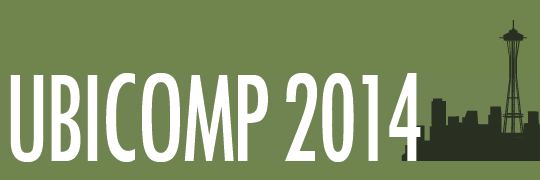Program
Call for Participation
Though never a desirable outcome, failure is an inevitable part of research. Too often, however, the tried but failed paths are lost in the translation of work to publication. With the pragmatics of publishing (e.g., page limits) and the academic emphasis on positive outcomes, failed processes, methodologies, study designs, and technologies are frequently not disclosed. This is a missed opportunity, particularly for nascent but growing research areas in HCI/UbiComp that require high costs in time, development, and recruitment for building and deploying testable systems. Our workshop focuses on one such area, in particular, the rapidly growing field of Personal Informatics (PI) or Quantified Self (QS).
In this workshop, our goal is to uncover, analyze, discuss, and learn from the failures of PI and QS research—failures that are most often not captured or surfaced in traditional publications because of embarrassment, perceived irrelevance, or simply lack of space. We want to provide an explicit forum to share stories of failure, perhaps even entire lines of research that did not succeed, in order to synthesize lessons learned and help progress the PI research community forward. We aim to bring PI researchers together in an environment where sharing mistakes and stories of failure is encouraged. We feel that many researchers—including ourselves—would greatly benefit from a solid set of practical, community-harvested guidelines and methodologies for conducting PI research in light of the challenges in this space. New PI researchers would particularly benefit from the surfacing of this institutionalized knowledge, as detours caused by repeating previous researchers’ mistakes can delay a project on the order of months or years without meaningfully advancing research goals.
Topics of Interest
We invite participants from a broad range of disciplines, including technologists, behavioral scientists, designers, and artists to submit papers describing their PI-related disasters, a retrospective analysis of what went wrong and why, and a synthesis of lessons learned. We invite contributions on topics associated with research failure points, including but not limited to:
- User Study Design: How decisions affecting the design of studies proved to be flawed, affected the validity of results, led to biases, or constrained findings.
- Privacy and Security: Approaches that could threaten the privacy of individuals or expose study participants to harm or discomfort.
- Field Deployment: Undesirable issues that emerged only in real-life deployments and could not be anticipated.
- Hardware and Software: The role that hardware and software platform choices played in failed experiments (e.g., open vs. proprietary, custom vs. off-the-shelf, web, mobile, desktop, wearables, sensors)
- Data Collection: How different approaches for data collection could compromise the data (e.g., in case of hardware failure).
- Methods and Techniques: Misuse of tools and instruments, such as poorly produced surveys and experience sampling abuse.
- User Interfaces: How UI design influenced findings, proved to be an obstacle in terms of user experience, provided misguided feedback or steered participants away from the task at hand.
- APIs: Issues around querying user data through third-party APIs, both in terms of technical approaches that proved limiting/unsuccessful or that violated terms of service agreements.
Workshop Format
The one-day workshop day will be split between rapid, five-minute “workshop madness” talks summarizing the authors’ workshop papers, small-group breakout discussions, and full-group presentations that distill and summarize the breakout sessions. The morning session will be dedicated to the topic of “failures”, and the afternoon will be focused on “lessons learned”. We will conclude with a 45-minute synthesis and all-group discussion.
Paper Submissions
Submitted papers must be 2–4 pages in the SIGCHI Extended Abstract format (Word or LaTeX). Papers will be reviewed by the committee based on their topic relevance, exposition, and potential to provoke thoughtful discussion. Each paper will receive at least two independent reviews. Accepted papers will be published in the UbiComp 2014 adjunct proceedings.
Please send submissions to [email protected] by 5:00PM PDT.
Connect
Join the Personal Informatics Facebook Group.
Organizers
Jon Froehlich
Matthew Kay
Jakob Eg Larsen
Edison Thomaz
Dates
-
Papers Due
June 2, 2014
June 18, 2014 -
Notification
June 22, 2014
June 25, 2014 - Camera-Ready June 29, 2014
- Workshop September 14, 2014
Location
Red Lion Hotel
1415 5th Ave
Seattle, WA 98101
Ubicomp 2014
September 13–17, 2014
Seattle, WA
